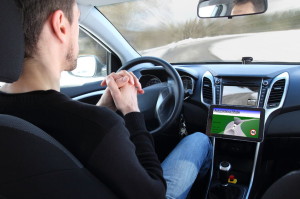 The idea of driverless cars is no longer something far away in the future. Driverless car technology is a reality. Some experts predict that driverless cars could be owned by many as early as the 2040s. Of course, while you may not personally own a driverless car, the very existence of this technology is changing the face of auto insurance. Here are 3 ways we can look for driverless cars to change the auto insurance industry.
The idea of driverless cars is no longer something far away in the future. Driverless car technology is a reality. Some experts predict that driverless cars could be owned by many as early as the 2040s. Of course, while you may not personally own a driverless car, the very existence of this technology is changing the face of auto insurance. Here are 3 ways we can look for driverless cars to change the auto insurance industry.
#1. Insurance premiums may decrease. This is one effect that will be a welcome change, but why would insurance premiums decrease? Because of the safety features built into autonomous cars, as their use becomes more prevalent, we can look for accidents rates to go down. As accidents decrease, so in turn, will insurance premiums. AI Technology advances such as driverless cars and advanced driver systems (ADAS) will significantly decrease accidents on American roadways, which is a very good thing as nearly 37,000 people are killed each year in car crashes in the U.S.
#2 Liability will shift to car manufacturers. One of the controversies surrounding autonomous vehicles has been the liability issue. Who is responsible for accidents, the auto owner or the car manufacturer? The operation of driverless vehicles relies mainly on the vehicle’s self-driving system, so it makes sense that the manufacturer would be liable when the car’s driving system fails. If you find this hard to believe, liability cases involving driverless cars manufactured by Volvo, Mercedes-Benz and Google have resulted in the auto manufacturers assuming liability. There is much litigation that will happen in the future before any precedents are set regarding autonomous car liability.
#3 Some drivers may drop full coverage auto insurance. This may not happen for many years but as accidents become less frequent, many drivers may opt out of full coverage auto insurance (collision and comprehensive coverage) and choose to only purchase the minimum amount of auto liability insurance coverage required by their state of residence. There is even the possibility that states could drop mandatory coverage as roadways become safer.
While none of these changes are written in stone, it will be interesting to see what changes will take place in the auto insurance industry because of autonomous car technology.








